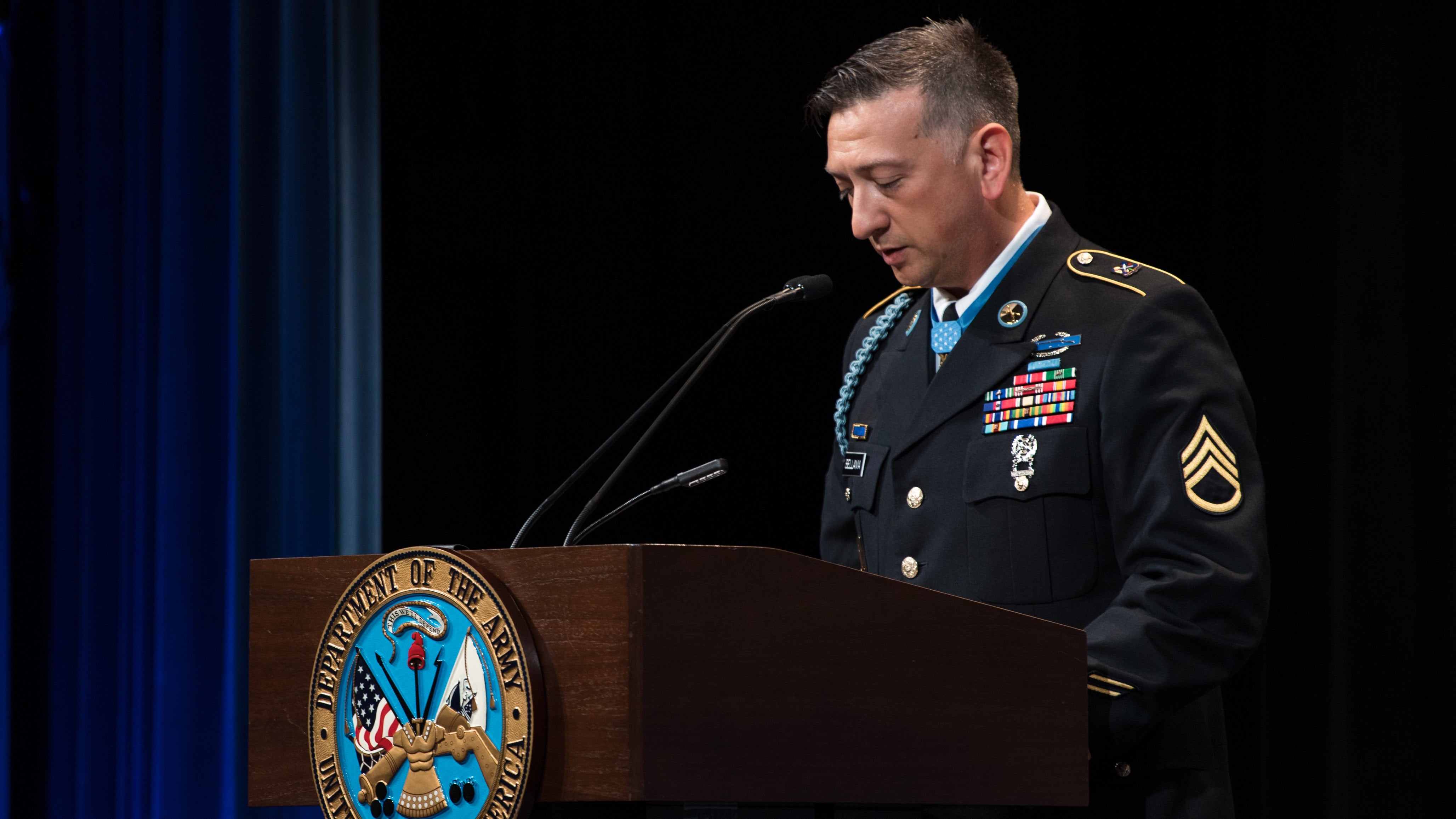Bellavia Honors ‘Beautiful, Dysfunctional’ Teammates
Bellavia Honors ‘Beautiful, Dysfunctional’ Teammates

When former Staff Sgt. David Bellavia’s unit was ambushed in Fallujah, Iraq, on Nov. 10, 2004, he charged toward enemy fire, saving many of his fellow soldiers’ lives.
Bellavia was awarded the Medal of Honor in June 2019, but the award doesn’t belong to him, he said.
“It’s not about the individual,” Bellavia said Feb. 21 during an Association of the U.S. Army Noon Report webinar. “I went through that fire with my friends, and now, with this honor, we're going to collect it together. The medics, the tankers, the engineers, every one of their jobs and their skill is why we were able to succeed on the battlefield. So, if there's going to be attention brought, let the attention be brought to the whole crew.”
Bellavia and his fellow soldiers from the 1st Infantry Division’s 2nd Battalion, 2nd Infantry Regiment, known as the Ramrods, were instrumental in the battle. He details his experiences in Fallujah in his book, Remember the Ramrods: An Army Brotherhood in War and Peace. In the book, Bellavia also shares how reuniting with soldiers in his platoon 15 years later at his Medal of Honor ceremony helped the group grapple with their wartime service.
The only living recipient of the nation’s highest valor award for actions in Iraq, Bellavia said he felt called to serve after witnessing the mistreatment of American soldiers after two Black Hawk helicopters were shot down during the 1993 Battle of Mogadishu in Somalia.
“To go to combat, to me, [as] an infantryman, was the greatest honor,” he said.
Today’s Army leaders should empower their soldiers to excel, Bellavia said. “A leader is only judged by what their subordinates do,” he said. “You will be eclipsed by your subordinates, and if you're not willing to let your subordinates be greater than you, get out of my Army. … That’s why this institution, every generation is better than the one that came before it.”
Reflecting on the realities of war, Bellavia said he realized something. “I thought for a long time that I needed rage and hate to sustain myself in a firefight,” Bellavia said. “In order to really sustain a fight, you can't feed hate, you’ve got to feed it with love. We don't fight because we hate the enemy, we fight because we love each other, we love our Army, and we love our country.”
Though almost two decades have passed since the ambush in Fallujah, the Ramrods are still going strong, Bellavia said.
“They’re beautiful, they’re dysfunctional, they’re just the most wonderful group of Americans,” he said. “What I know is that we’re not alone anymore. And this award was able to bring us all back together.”

